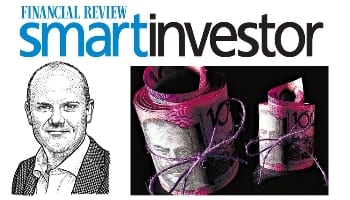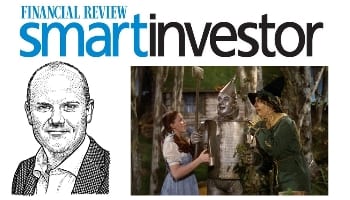The most recent edition of Golf Digest has a wonderful article titled ‘10 Rules for Good Golf Etiquette’ authored by the little know writer, Arnold Palmer.
By ‘little known’, we really mean one of the greatest players in the history of golf, the winner of 7 majors (including 4 US Masters) and 62 US tour titles.
In this article, we borrow The King’s 10 golf etiquette lessons and apply them to the world of investing.
1. Don’t be the slowest player
“They say golf is like life but don’t believe them. It’s more complicated than that”(Gardiner Dickinson, 7 US tour wins)
You may procrastinate about investing decisions, perhaps there are risks that you are fearful of or don’t understand. If this is stopping you from taking the initial investing steps, don’t worry, you’re not alone. A large number of Self Managed Super Fund investors still retain material levels of cash earning little more than inflation.
Past investing mistakes can also make you more reluctant to invest again. You need to pick yourself up and move on. In Arnold Palmer’s words “never search for a lost ball for more than five minutes”.
Be aware that fear and procrastination are big hurdles that block many people from achieving their investment goals.
2. Keep your temper under control
“Of all hazards, fear is the worst” (Sam Snead, 7 majors, 82 tour wins)
When Arnold Palmer was 17 he threw a putter over the gallery after missing a short putt. He still won and his father said nothing at the time. When they were in the car going home his dad told him “”If I ever see you throw a club again, you will never play in another golf tournament.”. Palmer never threw a club in anger ever again.
It is a well known fact that top performers are skilled at managing their emotions in times of stress in order to remain calm and in control. Successful investors are no different and your EQ (Emotional Intelligence) is as, if not more, important than your IQ.
Recognise that your investments will go up and down, try to automate with regular investing, buy and sell without becoming attached to any individual investment and don’t let your emotions guide your investing decisions.
3. Respect other people’s time
“To find a man’s true character, play golf with him” (PG Wodehouse, English author)
If you employ a trusted advisor to help you manage your finances, respect them as a fellow professional. Put aside dedicated time regularly to review your finances and meet with your advisor on a regular basis. In Palmer’s own words:
“Always make your tee times, and show up for your lesson with the pro a little early.”
4. Repair the ground you play on
“Professional golf is the only sport where, if you win 20% of the time, you’re the best” (Jack Nicklaus, 18 majors, 73 tour wins)
If you make investing mistakes, take the time to stop and clean them up.
Before you leave the investment bunker you’ve accidentally found yourself in, ask yourself:
- How can I clean this up?
- What lessons have I learnt, and
- Can I ensure I never repeat this mistake again?
5. Be a silent partner
“When a player is about to hit a shot, think of the fairway as a cathedral, the green a library.” (Arnold Palmer)
By this we don’t mean never seek to question your trusted adviser. You should ask lots of questions so that you fully understand the financial advice you are given before you agree to implement that advice.
What we mean is don’t try to second guess your professional adviser. Your advisor is a professional who seeks to give you independent and impartial expert advice that is in your best interests. You should heed that advice. If you find yourself regularly second guessing their advice, there is a strong chance you have lost trust and you should consider changing your advisor.
6. Make your golf cart ‘invisible’
“Golfers tend to play “follow the leader” and drive in single file out to the fairway before branching off. It’s usually better to “scatter” — everyone take a different route — so cart traffic is spread out.” (Arnold Palmer)
You can look at this as advice to follow the investing path less trod. Don’t mindlessly follow the investing herd.
In investing terms, Warren Buffet put it best when he said “Be Fearful When Others Are Greedy and Greedy When Others Are Fearful”.
7. Always look your best
“What separates great players from the good ones is not so much ability as brain power and emotional equilibrium” (Arnold Palmer)
At Quantum Financial we often say “Not everyone needs a financial planner but everyone needs a financial plan”. To look your best in the investing world, you need to have a sound, written strategic plan in place that guides you through the uncertainty in the markets around you. To borrow (with slight adjustments) from Palmer “Your financial plan speaks volumes about you as an investor”.
8. Turn off the cell phone
Don’t let technology distract you when you are formulating your strategic financial plan and investing strategy. There are endless sources of financial news and media just waiting to bombard you with information overload – much of it sensational and largely useless. This is known as financial porn – it titillates and excites but gives no lasting pleasure.
For another lesson from technology, consider Warren Buffett. He avoids investing in the technology sector because he doesn’t invest in in companies whose business he does not understand. He may miss out on the stellar technology success stories but he also missed out on losing money through the dot.com mania.
Did you know? As a teenager Warren Buffett sold used golf balls. He sold them on a golf course in Omaha for $6 a dozen after buying them for $3.50 from a provider 750km away in Chicago. That’s a 71% mark-up! They looked new but they weren’t.
9. Lend a hand when you can
“It’s easy to help out your fellow players, if you just pay attention.” (Arnold Palmer)
While the US ranks #1 on the world giving index, Australia sits #6 behind Myanmar, Canada, Ireland and New Zealand.
The US can trace its proud philanthropy record back to 1638 when John Harvard (an English clergyman and Cambridge graduate) bequeathed his library and half his estate to Massachusetts Bay Colony to build a college. Harvard University was built in the newly name town of Cambridge, named after Harvard’s English alma mater.
Australia’s record of philanthropy is not as strong but wealthy businessmen such as the late healthcare magnate Paul Ramsay (bequeathed $3 billion to charity), financier Graham Tuckwell and wife Louise donated (donated $50 million to ANU), the Packers, Pratts and miner Andrew Forrest have sought to change that.
10. Learn the little things
With investing, the seemingly little things can make a big difference.
Small regular investments with the benefits of compounding returns is one of the most powerful elements that separates successful investors from run of the mill investors.
Smart investors know that investing fees and tax matter, that diversification matter, and that the earlier you start investing the better.
The final and perhaps wisest words on Rules for Good Golf & Investing Etiquette go to Arnold Palmer:
“Just know that golf has a way of returning favours, and every piece of etiquette you practice will be repaid tenfold.”




